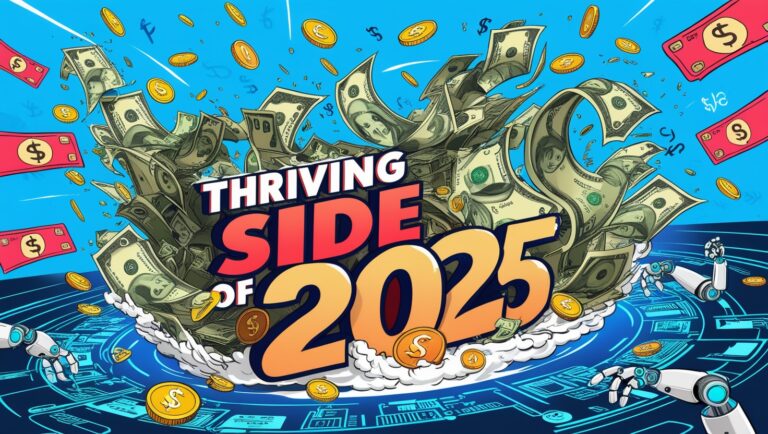Turn Your Skills into Cash: The Best Platforms for Remote Work and Gigs

In an era where remote work is becoming the norm, the internet has opened up endless opportunities to turn your skills into cash. Whether you’re a writer, designer, programmer, or someone with unique talents, there are platforms designed to connect you with clients and projects. From freelancing and consulting to teaching and creative work, these platforms allow you to monetize your skills without leaving your home.
This article explores the best platforms for remote work and gigs, helping you find the right fit for your expertise and lifestyle.
Why Choose Remote Work?
Remote work offers several advantages:
Flexibility: Work from anywhere, on your own schedule.
Financial Growth: Increase income by taking on multiple projects or gigs.
Skill Enhancement: Gain experience in different industries.
Work-Life Balance: Spend more time with family or pursue personal interests.
Global Opportunities: Access clients and businesses worldwide.
Top Platforms to Monetize Your Skills
- Upwork
Best For: Freelancers in writing, graphic design, programming, marketing, and more.
Overview: Upwork is one of the largest freelancing platforms, offering gigs for professionals in various industries. Clients post jobs, and freelancers bid to win projects. Upwork’s escrow system ensures secure payment.
Why Upwork?
Vast job categories.
Long-term and short-term gigs.
Trusted by large companies.
Ideal for building a steady client base.
Pro Tip: Create a polished profile with a strong portfolio to attract higher-paying clients.
- Fiverr
Best For: Creatives, digital marketers, video editors, and programmers.
Overview: Fiverr allows freelancers to list their services (called “gigs”) starting at $5. It’s ideal for small, quick tasks but also offers scope for high-ticket services.
Why Fiverr?
Easy to start.
Services across hundreds of niches.
Perfect for beginners and experienced freelancers alike.
Pro Tip: Offer unique services and bundle extras to increase your earnings per gig.
- Toptal
Best For: High-level developers, designers, and finance experts.
Overview: Toptal is known for connecting top-tier freelancers with prestigious clients. The application process is rigorous, ensuring that only the top 3% of applicants are accepted.
Why Toptal?

High pay rates.
Elite client list (e.g., Google, Shopify).
Remote full-time and part-time gigs.
Pro Tip: If you have advanced skills and experience, Toptal can significantly boost your earnings.
- Freelancer
Best For: Writers, developers, engineers, and translators.
Overview: Similar to Upwork, Freelancer allows users to bid on projects and win gigs. It features contests, allowing freelancers to showcase their skills and win prizes.
Why Freelancer?
Global opportunities.
Variety of industries.
Contest feature for portfolio building.
Pro Tip: Focus on niche markets with less competition for higher success rates.
- PeoplePerHour
Best For: Web developers, designers, and marketers.
Overview: PeoplePerHour connects freelancers with clients needing quick tasks or larger projects. Freelancers can offer hourly or project-based services.
Why PeoplePerHour?
Flexible payment models.
Strong focus on digital skills.
International client base.
Pro Tip: Use the platform’s “hourlies” to showcase quick services clients can purchase instantly.
- TeeSpring (Now Spring)
Best For: Designers and creatives.
Overview: TeeSpring allows creators to design and sell custom products (like t-shirts, mugs, and phone cases) without holding inventory.
Why TeeSpring?
No upfront costs.
Passive income potential.
Great for artists and graphic designers.
Pro Tip: Focus on trending designs and promote your products through social media.
- Skillshare
Best For: Artists, entrepreneurs, and educators.
Overview: Skillshare is a platform where creators can offer video-based courses on various topics. Instructors earn based on the number of students who enroll in their courses.
Why Skillshare?
Passive income from course views.
Ideal for creative professionals.
No teaching experience required.
Pro Tip: Choose evergreen topics (e.g., Photoshop, drawing, productivity) to ensure long-term views.
- Amazon Mechanical Turk
Best For: Simple microtasks like data entry, surveys, and content moderation.
Overview: Amazon MTurk offers small gigs that don’t require specialized skills but can be done quickly.
Why MTurk?
Low barrier to entry.
Easy to complete tasks.
Great for filling downtime.
Pro Tip: Focus on high-paying tasks to maximize earnings.
- Rev
Best For: Transcribers, captioners, and translators.
Overview: Rev offers remote jobs in transcription, captioning, and translating audio and video content.
Why Rev?
Work at your own pace.
Payments made weekly.
Minimal equipment required.
Pro Tip: Invest in quality headphones to improve transcription accuracy and speed.
- Etsy
Best For: Crafters, artists, and vintage sellers.
Overview: Etsy is a marketplace for handmade goods, art, and vintage items. It’s perfect for creatives looking to monetize their craft.
Why Etsy?
Niche, engaged audience.
Easy to start with low fees.
Passive income with digital products.
Pro Tip: Optimize your product listings with keywords and professional photography.
How to Choose the Right Platform
Match Skills to Platform: Choose platforms that align with your strengths.
Consider Time Commitment: Some platforms require more upfront effort, while others allow for quick, simple gigs.
Start with One or Two Platforms: Focus on a couple of platforms initially to avoid burnout.
Evaluate Earning Potential: Look for platforms that offer fair pay for your skills.
Tips for Success in Remote Work
- Build a Strong Profile: Highlight your experience, skills, and past work.
- Create a Portfolio: Showcase your best projects or products.
- Be Responsive: Prompt replies to clients increase your chances of securing gigs.
- Ask for Reviews: Positive reviews boost your visibility and credibility.
- Upskill Regularly: Stay competitive by learning new skills.
Conclusion

The digital economy is full of opportunities to turn your skills into cash. Whether you’re freelancing, teaching, or creating, platforms like Upwork, Fiverr, and Etsy provide a gateway to financial growth and independence. Start small, focus on quality, and gradually expand – soon, your side hustle could evolve into a full-time career.






